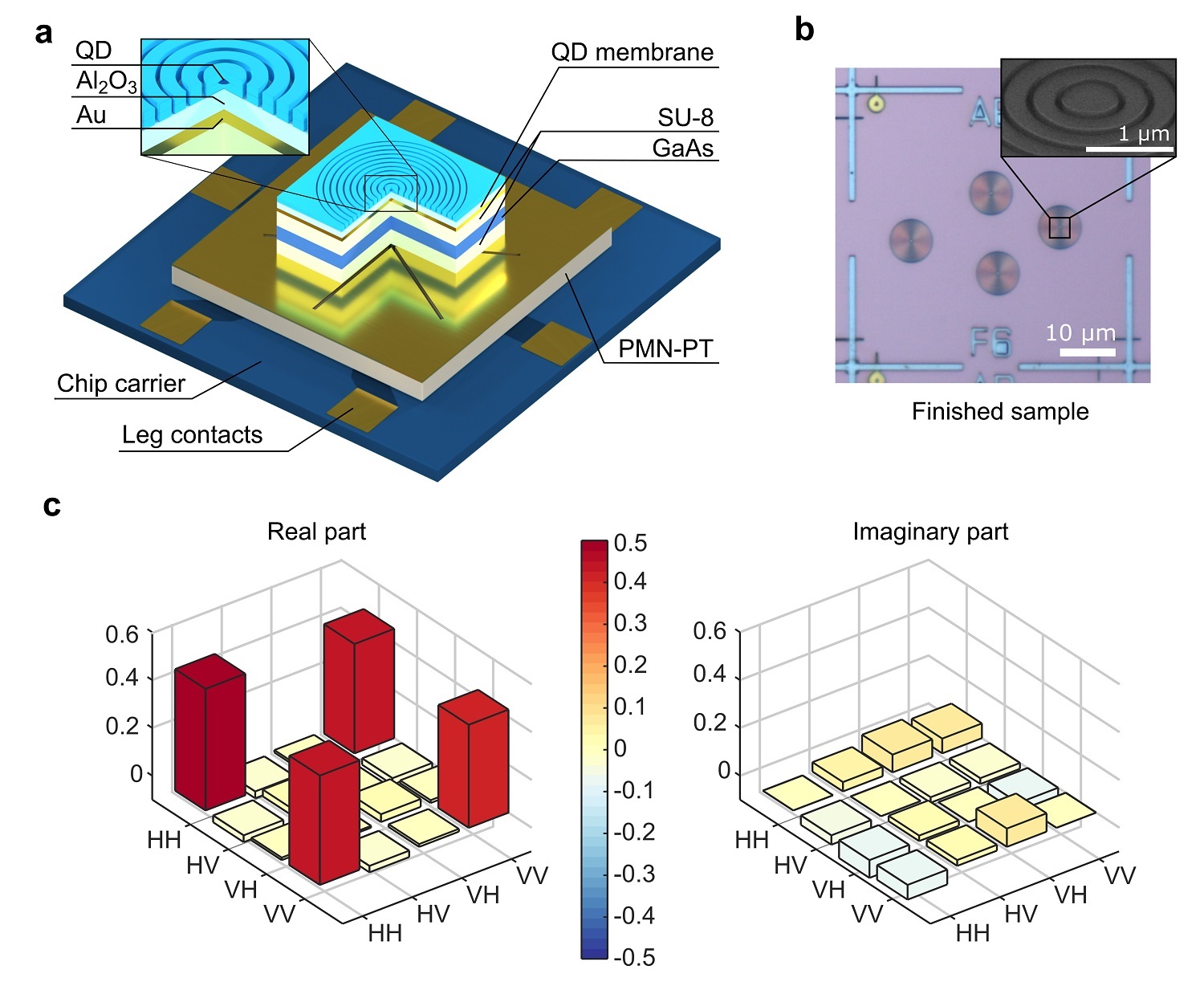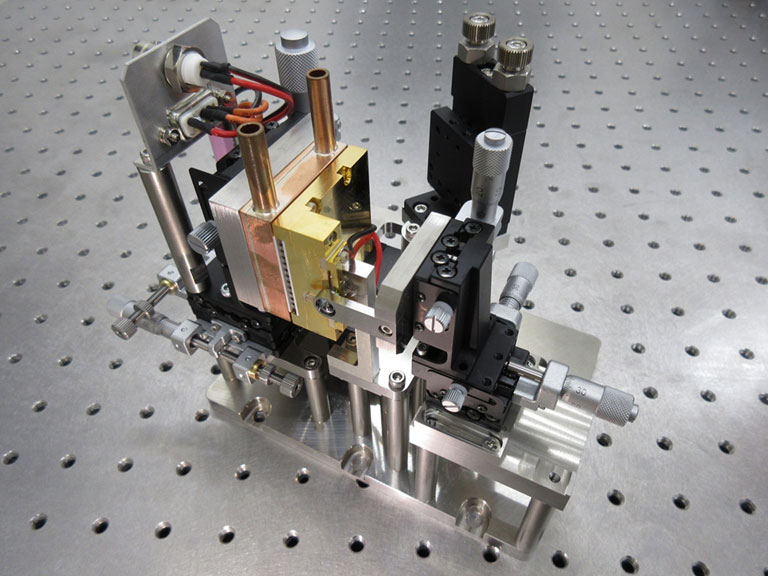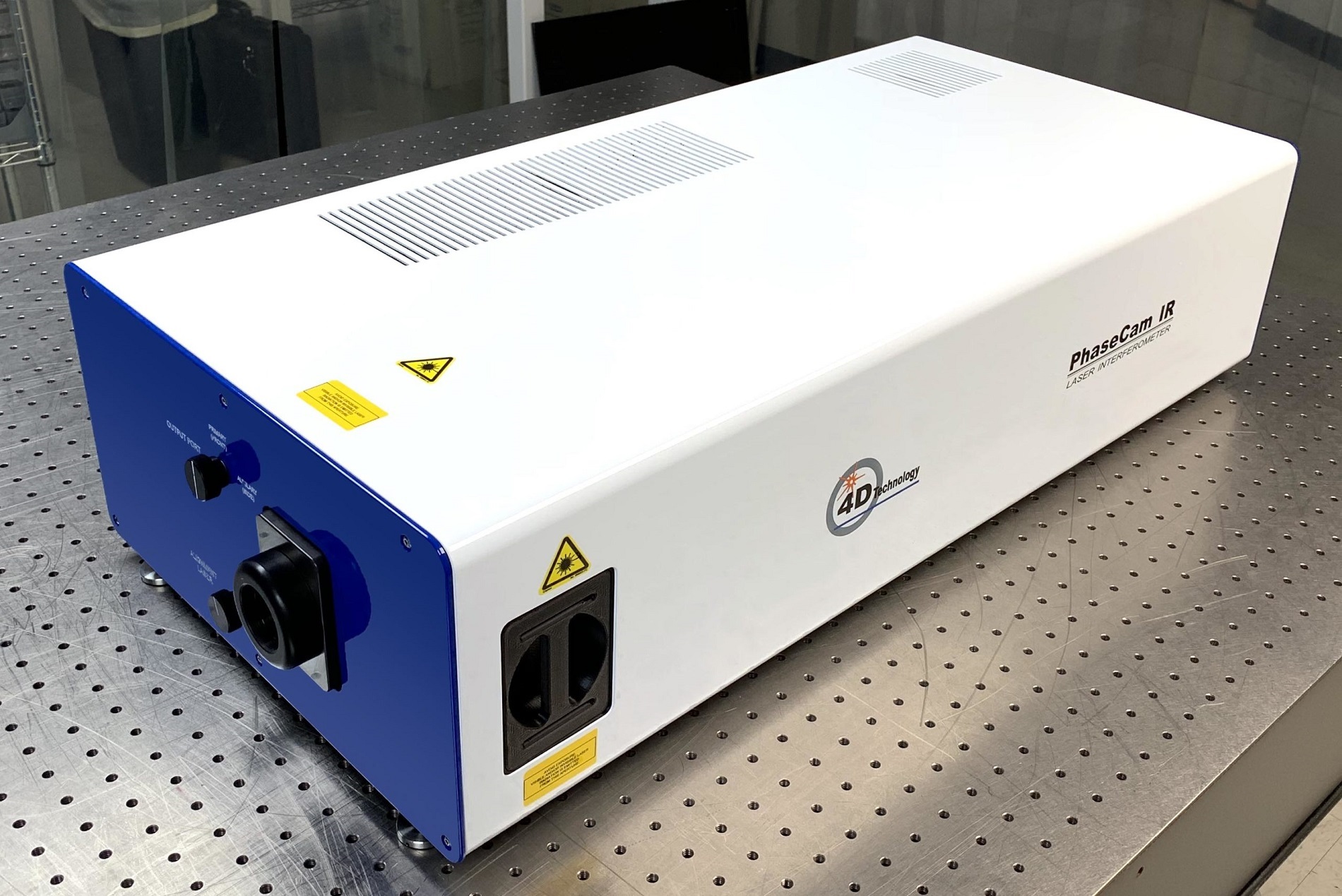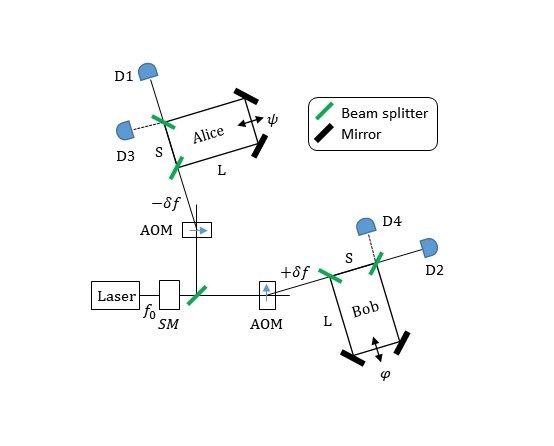05/08/2024
Imagine the possibility of sending messages that are completely impervious to even the most powerful computers. This is the incredible promise of quantum communication, which harnesses the unique properties of light particles known as photons. In quantum networks, information is encoded not only in the presence or absence of light pulses, but also in the intricate properties of the photons themselves, such as their polarization. Learn how this cutting-edge technology is revolutionizing secure communication.
A pan-European, Asian, and South American research team has developed a new light source that emits exceptionally bright, entangled photons. These special pairs of photons are the cornerstone of quantum communication, a revolutionary technology that promises ultra-secure data transmission. Unlike traditional sources, this new device overcomes limitations by achieving high brightness and entanglement, paving the way for more efficient and secure quantum networks.
A light source that can generate entangled photons is crucial for quantum communication. Entanglement is a bizarre quantum phenomenon where two photons become linked, sharing the same fate regardless of distance. If someone measures the property of one entangled photon, the other instantly reflects that change, even if they're separated by vast distances. This inherent link forms the basis for unbreakable encryption in quantum communication.
However, existing sources for entangled photons often face limitations. Traditional methods, like spontaneous parametric down-conversion (SPDC), can generate high-quality entangled photons but struggle with brightness. This means fewer entangled photons are available for communication, slowing data transfer.
Quantum emitters driven under resonant excitation offer a solution. These emitters can generate photons on demand and have the potential to be much brighter. Among these, semiconductor quantum dots (QDs) are particularly promising. However, until now, scientists haven't been able to optimize both brightness and entanglement in QD sources. They often had to choose between one or the other.
This new research addresses this challenge. The scientists created a unique device integrating a quantum dot with a special light-trapping cavity and a micromachined platform. This allows them to precisely control the properties of the light emitted by the quantum dot. By fine-tuning these properties, they achieved a breakthrough – a source that simultaneously generates bright, entangled photons.
This new source represents a significant step towards practical applications of quantum communication. Generating bright, entangled photons on-demand is essential for building secure and efficient quantum networks. These networks could revolutionize various fields, from ultra-secure communication for governments and financial institutions to unbreakable encryption for everyday transactions.
While challenges remain in achieving even higher brightness and perfect indistinguishability of the entangled photons, this research marks a significant leap forward. It demonstrates the potential of quantum dots as a reliable source for building the future of quantum communication networks.
###
References
DOI
Original Source URL
https://doi.org/10.1186/s43593-024-00072-8
About eLight
eLight will primarily publish the finest manuscripts, broadly covering all optics, photonics and electromagnetics sub-fields. In particular, we focus on emerging topics and cross-disciplinary research related to optics.















